All Available Episode
All Season 10 Episode
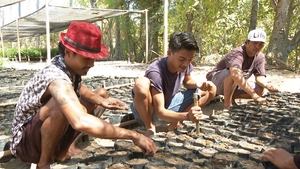
1. From Tourism to Farming
Often called the "Island of gods," Bali in Indonesia has long drawn visitors from all over the world. But the tourism industry has suffered a massive blow from the coronavirus pandemic, with huge numbers unemployed. Many have been forced to return to rural villages and try their hand at farming to make ends meet. One mayor is working to revitalize agriculture and retain some of their newly returned residents. Another entrepreneur is designing an app to improve farmers' incomes. Explore how the people of Bali are using farming to overcome their economic dependence on tourism and make it through the pandemic.
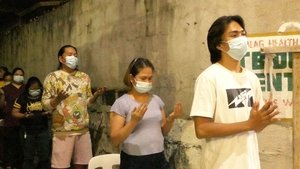
2. A Family Facing an Unsure Christmas: The Philippines
With a Christian population of over 90%, the Philippines is known for its lengthy and elaborate Christmas celebrations, which are ingrained into local culture. But at this time when families give thanks, there was seemingly little to celebrate at the end of 2020, after countless livelihoods and dreams had been suddenly erased by the novel coronavirus pandemic. This episode follows one Filipino family banding together and hoping to reclaim their dreams after a difficult year.
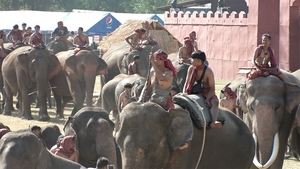
3. Thailand's Elephant Tribe: Searching for a New Path
In November 2020, one of Thailand's biggest festivals, the Surin Elephant Round-Up, took place -- despite the coronavirus pandemic. The event went ahead thanks largely to the passion of an ethnic tribe of elephant handlers. With a history of living with elephants that dates back centuries, the Kui people today depend heavily on income from tourism -- a livelihood that is now in danger of disappearing. We follow the people taking on new challenges in a long-running fight to preserve their culture.
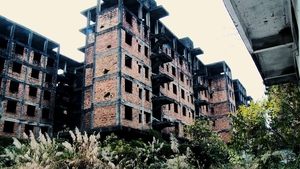
4. The Darkness Around China's "Ghost Castles"
China is one of the few nations experiencing economic growth among COVID-19. But the swift pace of real estate development has led to a strange phenomenon all over the country: "Ghost castles," apartments where building has halted. Hopeful residents are unable to live in the unfinished apartments, all while stuck in deep debt. A group of artists has begun creating art based on the buildings in order to draw attention to the plight. In this episode, we examine this issue faced by modern China.
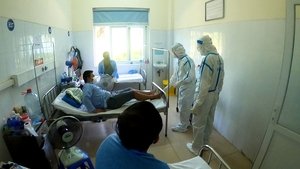
5. Vietnam: Fighting the Second Wave
In July 2020, a second wave of COVID-19 hit the city of Da Nang, Vietnam. A team from Hanoi's Bach Mai hospital who survived lockdown in the first wave came to support their colleagues and share their expertise on preventing in-house infections. But with far fewer resources, staff and equipment, it's a tough battle. To prepare for the worst-case scenario, they transform a local sports stadium into a field hospital. Follow the hard work of the medical team as they fight a multi-front battle.

6. The "Homeland" of Korean-Chinese Migrants in South Korea
Seoul's district of Daerim-dong is home to a large number of ethnic Korean-Chinese residents. Ethnic Korean-Chinese are the descendants of Koreans who moved to China generations ago. Some seek new lives in South Korea, but much of what they find is hard labor with no job security. Even worse is the prejudice faced from South Koreans, and the recent threat of COVID-19. This episode follows the Korean-Chinese people grappling with their own roots in their ancestorial homeland.

7. Sustainable Forest Living in Laos
The Nam Theun 2 Dam sits atop the Nakai Plateau in eastern Laos. Most of the power it produces is sold to Thailand, but a percentage of profits is earmarked for nature conservation and for improving the lives of locals. The region is a treasure trove of plant and animal life, so the government has forbidden locals from hunting or logging. Those who have lost their livelihoods are now pinning their hopes on an income from eco-tourism. The residents of one village have had their lives turned upside down by the mega-dam. What can be done to both conserve the environment and improve locals' quality of life?

8. South Korea's Elderly YouTubers
In South Korea, use of YouTube is more popular than ever, and elderly YouTubers are gaining fame thanks to their accumulated skills and personalities. In particular, they attract viewers with their soothing outlooks on life. The local government has begun holding workshops encouraging senior citizens to create YouTube content with the intent of providing the elderly with a new hobby. For the successful it can become a new source of income, leading to business opportunities for them.
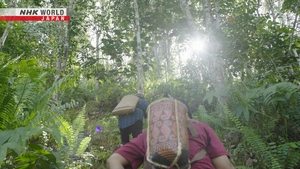
9. Reviving Indigenous Designs: North Borneo, Malaysia
East Malaysian Borneo is known for its many indigenous peoples, with the northern state of Sabah said to be home to 42 minority groups, comprising half its population. Living as one with nature, these tribes have created unique clothing and crafts. Traditions are preserved by tribes in remote regions, but urbanization and modernization have caused much to be nearly forgotten. Now, the residents of North Borneo reexamine their roots so that they may be carried on by future generations.
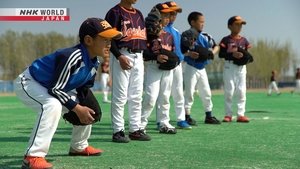
10. Children Forging their Futures with Baseball: China
Once considered a niche sport in China, baseball has gained popularity in the nation ahead of the Tokyo Olympics. Former Chinese national team captain Sun Lingfeng sees this as a chance to help disadvantaged youth, recruiting children from impoverished regions to his team, the Angels, which also provides them with education and housing. Skilled sports players receive priority in university applications, so Sun hopes that baseball will bring new opportunities to the children's lives.
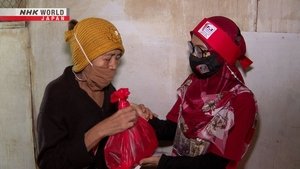
11. Saving Lives through Gotong Royong: Indonesia
Indonesia has been hit hardest by the coronavirus pandemic in South-East Asia. Its economy has taken a massive blow, and many are struggling to put food on the table. As government support is widely criticized as ineffective, people have come together to provide mutual aid under the banner of Gotong Royong. The phrase means "carrying together" in Javanese and its spirit can be found across the country. Meet the women and volunteers working hard to support their neighbors.

12. Muay Thai Daughters - Pride of the Family: Thailand
The Looksaikongdin Gym sits on a canal in the Minburi district in the outskirts of Bangkok. The owner, Nopparit, is a devout Muslim who has taught his 14 children the art of Muay Thai fighting to improve their lives and keep them away from drugs. Five daughters have won Muay Thai championships and 4 sons have held boxing titles, earning national fame as the "Big Muay Thai Family." Aida (18) in the 51kg weight category and her sister Duangdawnoi (23) in the 48kg category continue fighting with the support of their family as uncertainty resulting from the pandemic threatens their plans for future fights.
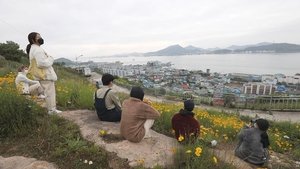
13. A Life-changing Week: South Korea's Don't Worry Village
South Korea is known for the intense competitive stress placed on young residents of cities, leading to suicide rates that increase yearly. To counteract this problem, an educational program known as "Don't Worry Village" was founded in the southern port city of Mokpo. It gives emotionally fatigued young people new courage and a chance for self-reflection, encouraging a fresh start in their lives. It has also helped the local community, which is affected by an aging and decreasing population.

14. Helping Homeless Migrants: Shenzhen, China
While migrant workers helped build Shenzhen into the third largest urban economy in China, many find themselves left behind by the prosperity, instead ending up exhausted and homeless. Yi Xiong is a volunteer who is a migrant himself, and spends time outside of work looking for local migrants who have been rendered homeless. He offers them warm meals, helps them find jobs, and encourages them to make the often difficult choice to return to families in their hometowns and start their lives anew.

15. South Korean Women Choosing Unmarried Life
In South Korea, due to traditional Confucian values, families tend to have a patriarchal structure. A 2020 study indicated that women in double-income households perform 3 times the chores that men do. In response to these conditions, support has grown toward women who choose to remain unmarried. This episode introduces unmarried women in a range of professions promoting their lifestyles through various careers and living situations, changing the notion of family in South Korean society.

16. The Frontline of Food Delivery - South Korea
In 2020, South Korea's food delivery industry turned over around 15 billion US dollars - 70% more than the year before. Around half of the country's population of 52 million people use at least one of more than a dozen local food delivery apps. App companies are trying everything they can to stand out from the competition, from speedy deliveries for customers who don't want to wait a second longer than necessary, to services that allow you to track your order's exact location in real time. One company is even employing delivery robots! Explore how South Korea's delivery services are evolving in the midst of the global pandemic.
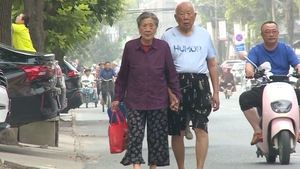
17. The Birthplace of the One-child Policy: China's Graying Population
Rudong County was called the birthplace of China's one-child policy, implementing it 10 years before the rest of the nation. Now, the youth that once participated in the policy have reached old age, and many are destitute, unable to count on financial assistance from one son or daughter. Despite the solitude these senior citizens endure and the end of the policy, the now middle-aged adults born in that era are reluctant to have more than one child, worsening the stagnant population growth.
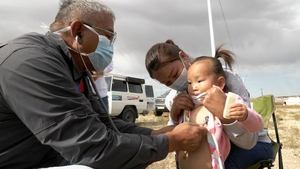
18. Healthy Hearts in the Steppes: Mongolia
A medical team, led by heart surgeon and expert Bundan Boldsaikhan, visits rural towns and villages in search of children with heart problems. Pandemic restrictions have made access to treatment all but impossible for some families, and their children's conditions are worsening. The team seeks them out and brings them to an Ulaanbaatar hospital for surgery. If the families are in difficult circumstances, donations from companies and individuals cover the cost of travel, surgery and the hospital stay.
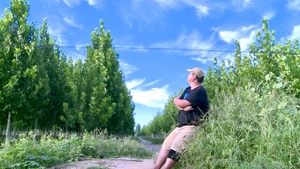
19. Young People "Lying Flat" in China
Against the backdrop of the ever-growing Chinese economy, a new movement known as "lying flat" has gained attention from young people all over the nation. It means rejecting social status by working only enough to survive, and thus giving up on home ownership or marriage, which proponents of the lifestyle feel are already unattainable due to class differences. Against condemnation by the government and pressure from aging parents, these youth choose to stand up for themselves by lying flat.
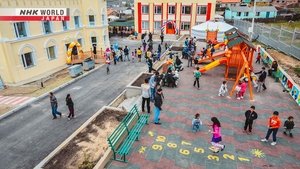
20. Magic Mongolia: A Shelter for Children
In settlements on the outskirts of Mongolia's capital Ulaanbaatar, some 800,000 people - many day laborers from rural Mongolia and former nomads - live permanently in traditional ger tents. Most live in poverty, and crime and violence are an everyday affair. Cases of child neglect and abuse are common. NGO "Clang of the Hammer" aims to help such children, running shelter "Magic Mongolia" where counsellors and social workers care for children around the clock. Meet the NGO's leader and his dedicated team.

21. Island's Fight for Zero Plastic Waste: Taiwan
Xiaoliuqiu is a small island in the south of Taiwan surrounded by a beautiful sea with coral reefs, also known as "Sea Turtle Island." However, the rising number of tourists has created massive amounts of plastic waste, posing a major threat to the local environment. In order to restore the natural beauty of the island, divers, innkeepers, shopkeepers and other residents are working together to turn the tide. We follow the efforts of a small island that has initiated a number of novel projects in pursuit of zero plastic waste.

22. A Pro-Democracy Newspaper Shuts Down: Hong Kong
After 26 years, Hong Kong's biggest pro-democracy newspaper, Apple Daily, closed in June 2021. The paper was dedicated to freedom of speech, including government criticism, and was so influential that reporters were barred from covering news in mainland China. The reason given for its shutdown was that it violated the National Security Law passed in June 2020. Founder Jimmy Lai and several executives had already been arrested. The 1997 handover from the UK to China guaranteed Hong Kong 50 years of autonomy under the "one country, two systems" principle. Instead, Hong Kong is undergoing major political changes. We meet the reporters who lost their jobs, and follow the new ways they are finding to examine their city's future.

23. The "Matchmaking Park" for Seniors: Beijing, China
The graying Chinese population has surpassed 260 million, while care facilities and welfare systems still remain undeveloped. Among this environment, many senior citizens search for new spouses. More than 200 of them gather every Sunday for matchmaking events in the Beijing park known as the Temple of Heaven. This episode introduces the elderly citizens who, having lived through a turbulent era, now seek their last life partners despite the challenges faced by an aging Chinese society.
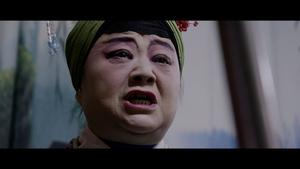
24. Shanghai's Migrant Opera: The Final Curtain
Drastic redevelopment has changed the face of Shanghai's historic Hongkou district, but nestled in an alleyway lies a unique folk opera house that represents one of the last of its kind. The Huai Opera performed here, as well as actors, musicians and audience alike, originally hail from the rural Subei region of Jiangsu Province. Troupe leader even provides on-site food and lodging for her aging performers and audience members, but when city authorities declare the building unsafe, residents are given just 1 month to leave the premises and find a new way of life.
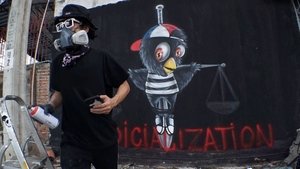
25. Street Art Bringing Change: Thailand
Street art in Thailand has gained attention, and nowhere more so than Bangkok's central Chaloemla Park, where people of all skill levels can receive permission to paint on the walls. Young artists and tourists gather to admire the art, and then spread it all over the country. Prominent street artists have worked since before the recent popularity of the medium in order to depict the changes occurring in Thai society. In this episode, we meet the artists painting a generation onto city walls.

26. Afghanistan: Will Peace Return?
In August 2021, the Taliban took control of Afghanistan for the first time in 20 years. Many have become refugees both within and outside their country, while others feel more secure than they did under the previous government. Meanwhile, an extreme interpretation of Islam's teachings is closing doors on female education and threatening women's place in society. One member of Afghanistan's women's soccer team is seeking a way to leave the country in order to continue playing. Western nations have frozen Afghan assets, driving the country's economy to the brink, while the pandemic and droughts spark fears of a devastating famine. We visit the Afghan capital of Kabul one month after the Taliban's return to report on the ongoing turmoil.

27. China's Live Commerce Village
In recent months, new residents have flooded to Beixiazhu Village in Zhejiang Province to be involved with livestreaming e-commerce, a growing industry that offers opportunities for anyone to potentially get rich quick. Many aspiring streamers include single mothers, the uneducated or others facing obstacles to conventional full-time employment. Industries have grown around the phenomenon, with schools offering intensive training courses to hopefuls willing to do whatever it takes to make a sale.
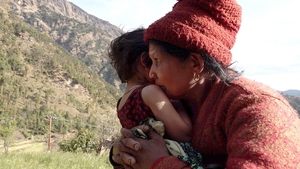
28. Grandma of the Empty Village: Nepal
High on the slopes of the Himalayas, in one region of Nepal known as "Little Japan," the number of men and women who travel to Japan to work has caused severe depopulation. In Tokari Village, one woman raises her grandchildren alone. Combined with the fatigue from farm work, the stress of each day brings her to tears. In this episode, we follow a family seeking a modest life of happiness over the course of 2 years as they contend with the challenges of global immigration.
